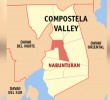“I must confess that my generation cannot fully empathize with the people against the Marcoses, but I do know that loving them would be like loving the one who killed your father or raped your sister.
I am almost 19 years old, and am among the lucky ones who hadn’t experienced what you had. But I love my country, and I love my people. And even though I wasn’t there during Marcos’ regime, I am here now while Pnoy rules.
I do not like how my peers do not even care to know what’s happening in the land they are living in. Sometimes I get angry.
And that’s why we’re here. We’re here to let them know, to rekindle in them their identity, to not let them lose who they are or forget who fought for them to live.
The system bred apathy. Even in school, students are discouraged to organize. Our student government is moderated by an admin. Our teacher tells me that the tuition fee increase is for the teachers’ salary increase, but is unable to explain when I told him it didn’t change even a cent.
The system not only bred apathy, they taught us wrong things.
Whatever the youth have become today, it is largely because of them, because of the media who give news that are “malabnaw” at best, and showbiz at worst.
Very, very few of our teachers teach us politics. Even theology, even philosophy has been cheapened, belittled, confined to little things that don’t give justice to its founders.
If there’s a reason why most love the Marcoses, we know who and what to blame.
If there’s anyone who can change this, we know who we are.”
Within minutes after posting this on an online group against the Marcos movement, it circulated on the internet.
I did not expect his much attention. It was only a comment, after all. Just a few lines of my thoughts. And it scared me, this kind of attention. Every word I speak or write can be held against me.
But then I’d think of the jeepney driver who nearly had to beg two of his passengers to pay fare, and it gives me reason. I’d think of the taxi drivers waiting day and night and even in the wee hours of the morning at the entrance of our village, looking out for passengers, and it gives me reason. I’d think of how they’d cajole the few people who’d pass by around midnight and say to each other, “Mingaw noh?” (It’s too quiet, isn’t it?) I’d think of the men who worked long, backbreaking, sun-scorching, and sweat drenching hours to put up Ateneo’s new building.
I can only hope that their children will get to enter Ateneo to study—and not to work.
I’d think of the line of dingy sari-sari stores right beside Abreeza Mall and again be struck by the blazing contrast.
“Pag may tiyaga, may nilaga,” is an old adage that means if you work hard, you’ll succeed. But aren’t these men working hard, too hard? What of the taho vendor who waits outside the Jacinto gate of Ateneo, what of the lady who roasts peanuts outside Ateneo’s claveria gate the whole day and night long, exposing herself to the scorching heat of the sun and the perils of the night?
Yes, they work hard. But for what? They work hard just to make ends meet.
They always tell us that education is the key to success, but doesn’t give us the means to acquire it. In Philippines, the gap between the rich and poor is very palpable, that even education has become an apartheid. It seems the poor need to counter the impossible to succeed.
We are stuck in this labyrinth where the only thing we can do is run for our lives, but never out of it. We are stuck in a system where we are made carabaos—plowing land for others, but only paid patches of grass and a few hours of blessed respite from the sun.
That’s what the system has made us to be. Animals. Creatures made to work for others’ gain, slaughtered and sold, enslaved and imprisoned–nothing more and nothing less. They treat their pets better than they do us.
This pushes me. It drives me to do what I never planned I would. To write—for a purpose other than for my own interests.
To my peers, let us be more than what we planned to be. No one need be great in order to be great. Deeds need not be recognized, for good things don’t need recognition in order to be good.
If you sing, sing for progress.
If you dance, dance for progress.
If you play sports, do it for progress.
We all have our own ways of fighting, of helping. Every little thing counts. And right now, every little thing is needed more than ever. And it’s a challenge for all of us. But what’s more challenging is to keep ourselves humble. Humility is as elusive as it is as loyal. Philanthropic deeds aren’t enough. Hundreds of thousands worth of donation isn’t enough. We have to ask ourselves, for whom do we do what we do?
This is our time. The fate of the Philippines is in our hands. Let’s do this for our country. Let us redeem its dignity where it lost it—right where we are now. Let us be who we are called to be. Let us not allow anyone to enslave us further. Let’s do this not for hatred of the government, but for the love of our country, our motherland.
Let us be Filipinos.










